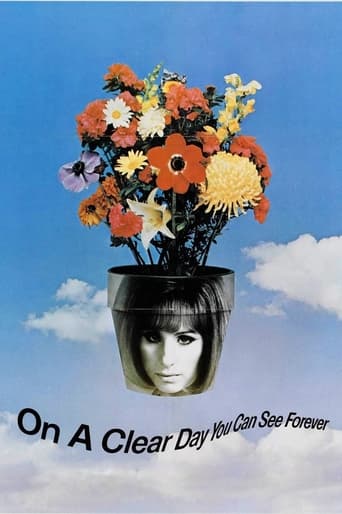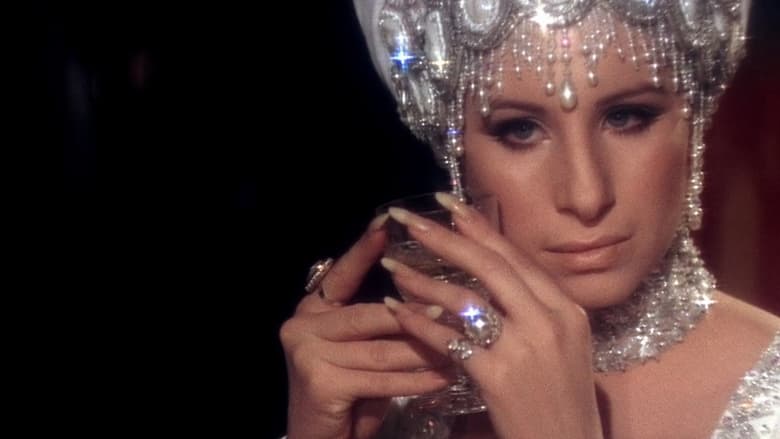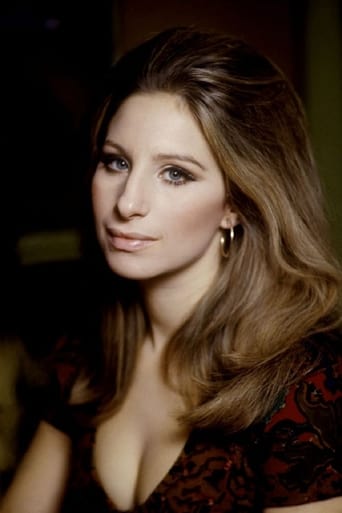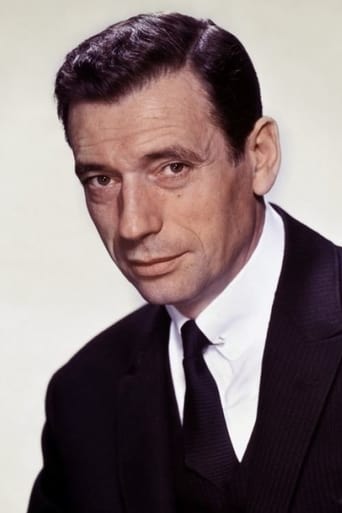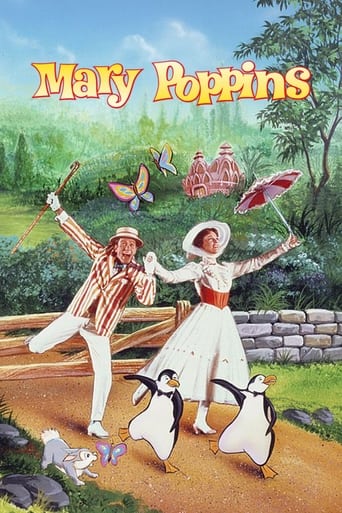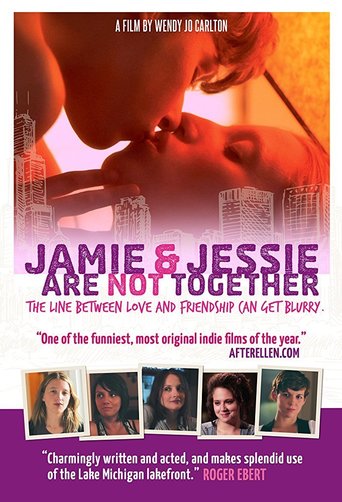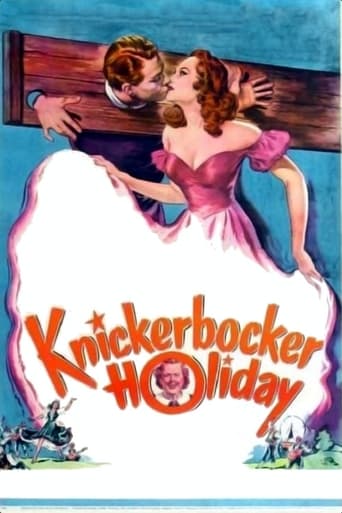On a Clear Day You Can See Forever (1970)
Daisy Gamble, an unusual woman who hears phones before they ring, and does wonders with her flowers, wants to quit smoking to please her fiancé, Warren. She goes to a doctor of hypnosis to do it. But once she's under, her doctor finds out that she can regress into past lives and different personalities, and he finds himself falling in love with one of them.
Watch Trailer
Cast
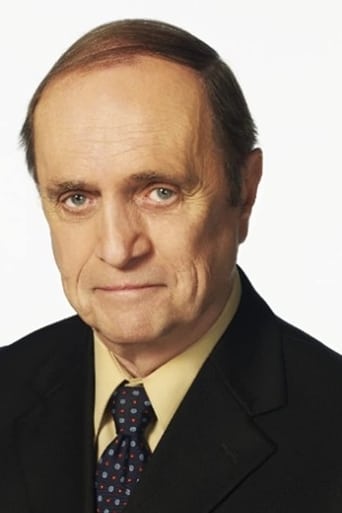


Similar titles
Reviews
Overrated and overhyped
Fantastic!
Best movie ever!
It was OK. I don't see why everyone loves it so much. It wasn't very smart or deep or well-directed.
In some ways I felt like I enjoyed this movie in spite of myself, or itself. Equally drawn to the film by my admiration of the director Vincente Minnelli and repulsed by its leading lady Barbara Streisand, I find that in the end neither artist contributed his/her best or worst work, and that the whole package itself is mostly lacking in the necessary charm. Yves Montand presents far more problems than Miss Streisand, and Minnelli trips over his own staging to try to make the modern sequences all too modern and the historical sequences all too romantic.Streisand plays Daisy Gamble (a name only a musical comedy doyenne could possibly be saddled with), a young would-be wife who comes to a college psychologist (Montand) in hopes that he can use hypnotism to cure her excessive smoking habit. Instead, the good professor uncovers a whole past life involving a seductress called Melinda, a persona whom the professor promptly and unconvincingly falls in love with.At first it seems refreshing to have Minnelli directing this movie, with his gloriously excessive bouquets conjured up to bring some portion of artificial magic to Daisy's wistful rooftop escape. His style quickly becomes overbearing, especially since he seems to have little taste or comfort with the modern settings and styles he's using. His use of the zoom lens, the only time I can remember him using it, is garish and obvious. An ascending helicopter shot of Montand warbling atop the Pan Am building only manages to distance us from any possible emotion that could be squeezed from his continental charmer. Only in the historical sequences with their incredibly elaborate costuming and real location shots of the Brighton pavilion, does Minnelli momentarily come alive, to live again in the romantic past for one more brief moment.Montand is the glaring problem with the film. His character is completely unappealing and the way he plays him makes it much worse. The more we see of him, the less we appreciate him or can understand why Gamble is becoming infatuated with him. Likewise it's hard to see why Montand is becoming fascinated with the past life Streisand. His whole scheme is very underhanded, since he hasn't told Gamble that he's been recording all her sessions or that he's investigating a past life at all. His motives are supposed to be cleared up thanks to a series of distracting conferences with a professorial colleague oddly played by tough-guy character actor Simon Oakland.When the "good professor" becomes desperate to get Gamble back on his couch and begins sending her psychic messages to "Come Back to Me", the result is less romantic than stalking. Psychic stalking -- it's something that belongs more in a Phillip Dick nightmare sci-fi story than a musical comedy. It's hard to not get a really bad taste in your mouth, especially since the film-makers have already provided a suitably obvious and suitably compatible well, uh, suitor in the person of Daisy's ex-brother-in-law played by Jack Nicholson. We first see Jacko on the roof brazenly strumming his sitar, as if he walked out of the J.C. Penney catalog of hippies. Made-to-order hippy Jack Nicholson apparently got a solo but it was cut when a decision was made not to roadshow this film. Thus even the film's relatively satisfying conclusion seems to be drawn in abstract lines, thanks to Minnelli's liberal style of shooting and the subsequent edits that cripple the film's continuity.As for Miss Streisand herself, she does her best to play the character in a rather sophisticated way but is often undone by her own energy. I didn't feel that she carried off the multiple characters particularly well, and in her solo numbers she heaves and bellows through without any hint of real human vulnerability. She has some good moments as Daisy, but in the Melinda personality she's outclassed by her own headgear.The film itself doesn't really ever rise to the level of its ambition. What should be a fun evening of musical comedy becomes a mere distraction. The story and its characters never really become anything human or convincing. A stifling aura of artfulness prevents the film from taking off -- it's as if all the performers and the director are standing a few feet away from the film they're making. Montand barely seems to know what movie he's in. Lerner and Lane's songs are ponderous and barely memorable. The story itself seems to revisit Lerner's past artistic life, with its Henry Higginsesque professor remonstrating himself and mistreating his naive leading lady in a way that strangely manages to evoke absolutely none of the charm that lifted his Fair Lady above the fray. The film is saved from outright artistic failure thanks to a few imaginative sequences staged by Minnelli, Nicholson's goofy and fun cameo, and a few moments of inspired clowning by Streisand.
In trying to keep up with the hipness of youthful audiences as the 70s approached, OaCD,YCSF was the product of odder and odder material selected for musicalization. Here it's past life regression, ESP and hypno-therapy... pretty loopy! The real problem with the concept (music or not) are the extraordinarily low dramatic stakes; just where can a movie go, and what can happen, when a man falls in love with a previous incarnation of a girl he can't stand? It can't go any place new, but strangely, it can't even go any place old! Indeed, if it could, audiences would still have no interest in the union of Yves Montand (playing a much older, arrogant, French ass) and Streisand. (a much younger girl). We never become invested in them, their situations or outcomes. Montand is miscast and his strong accent makes many of his lyrics unintelligible.It's all been given a shallow 60s veneer that makes it eminently disposable; despite efforts here and there from Minelli that are respectable. It's not even adapted from a non-musical story that met with any previous success... that's just too passe! Streisand occasionally has some funny business to offer, as when she's trying not to fall asleep on her roof and improvises an energetic dance. But she over-relies on her ingratiating (translation: irritating) kooky, Jewish girl shtick. She can however sing very well, at both the "gentle" and "powerhouse" ends of the range. Amidst a score of musical dross, she gets 3 or 4 amazing songs* of much higher caliber than anything Fanny or Dolly had to offer. 'He isn't you' is a sweet trifle as sublime as Lorenz Hart's 'My Funny Valentine,' but the movie isn't able to realize any impact from it; because the lyrics don't seem to be referring to anything in the movie, and nothing remotely suggests a great love is blossoming between Chabot and Melinda.The only cut we can view is a poor hatchet job of a much bigger film. Strong research shows a longer, better-explained and more decorative, but not necessarily a better film at: http://barbra-archives.com/films/clear_day_streisand_2.html. You can be sure there's be more Babs in that version but more importantly, there'd be more thoughtful work from Minelli.In the end Montand sends Babs off to sing the title song, after she discovers he's a total dick who feeds her a self-esteem homily to allow himself off the hook. And she takes the bait. So, uh... hooray for that.(*Hurry it's lovely up here, Love with all the trimmings, He isn't you, & the title song)
The final musical directed by the legendary Vicnente Minnelli, ON A CLEAR DAY YOU CAN SEE FOREVER, is the expensive and lumbering 1970 film version of the 1965 Broadway musical, revamped to fit the talents of Barbra Streisand. In her third feature film, Barbra plays Daisy Gamble, a college student who we learn has ESP and the ability to make plants grow VERY quickly, who seeks the help of a college professor, Dr. Marc Chabot (Yves Montand) in helping her to quit smoking via hypnosis. While under hypnosis, Chabot discovers Daisy had a previous life as a 17th century temptress named Melinda Tentrees, who he falls in love with, but has to deal with the dull and annoying Daisy to get to the ever fascinating Melinda. This inventive Broadway musical has been dramatically re-tooled into a Barbra vehicle and despite Minnelli's still evident eye for color and cinema landscape, this long lumbering film fails to sustain interest until the end, despite some lovely scenery and breathtaking period costuming by the legendary Cecil Beaton. Streisand and Montand have no chemistry whatsoever and Bob Newhart, Simon Oakland, Larry Blyden, Elain Giftos, and Jack Nicholson (!?!)are wasted in pointless supporting roles. The severely tampered with Burton Lane-EY Harbug score includes "Hurry, It's Lovely Up Here", "What did I have that I Don't Have?", "Melinda", "Go to Sleep", and "Come Back to Me." For hard-core Streisand addicts only.
This was one of the very last of the lavish screen musicals to be made in the classic mode, and, by the time of it's early 1970 theatrical release, it already seemed tired and dated. This is why it is somewhat shocking that, when viewed today, ON A CLEAR DAY is not only tremendously entertaining, but that it's also possibly the most underrated film of both director Vincent Minnelli and star Barbra Streisand. The film's reincarnation theme was pretty cutting-edge back in the early-seventies, and it still feels unique even today. The film received fair-to-negative reviews from critics at the time, and even though it proved to be a modest hit at the box office, it has been long forgotten by the general public, and it even goes unlisted on many of Streisand's selected filmographies. This is a shame, for Streisand's highly impressive dual performance may prove to be a revelation for some of her admirers and critics alike.Streisand does some of her very best screen work in the film's frequent flashbacks. Not only does she look absolutely beautiful as Melinda in Cecil DeVille's many elaborate costumes, but her Regency- era poise and accent are completely flawless. Streisand also gives one of her most likable performances as kooky Daisy (her character's present-day incarnation), and her outstanding performance(s) make the contrast between the two characters completely convincing and believable. Yves Montad is acceptable in his role - I don't believe he really deserved all of the criticism that he's received over the years, yet I do find his performance to be somewhat stiff. Having said that, though, Montad is perfectly serviceable as the skeptical hypnotist. Jack Nicholson, Bob Newhart, and John Richardson appear in small supporting roles, and, though they all feel rather underused, their appearances here are all great fun.However, there's something about the Streisand-Minnelli pairing that seems to have brought out the best in the two legendary talents. The flashback segments in particular provide the perfect showcase for Minnelli's imaginative visuals, and these are also the very scenes that allow Streisand to stretch the most as an actress. In particular, the "Love And All The Trimmings" sequence is easily one of the best moments that Minnelli ever captured on film, and Streisand has rarely been more intensely seductive than in this one sequence. Score-wise, the soaring title song is the only real classic of the eight Lenner-Lowe compositions, but a few of the others (the comic "Go To Sleep," the gorgeous "He Isn't You") are nearly as great. Bottom line: ON A CLEAR DAY is a film that's usually funny, sometimes touching, and always inventive and enjoyable. It's undervalued gem if there ever was one.

